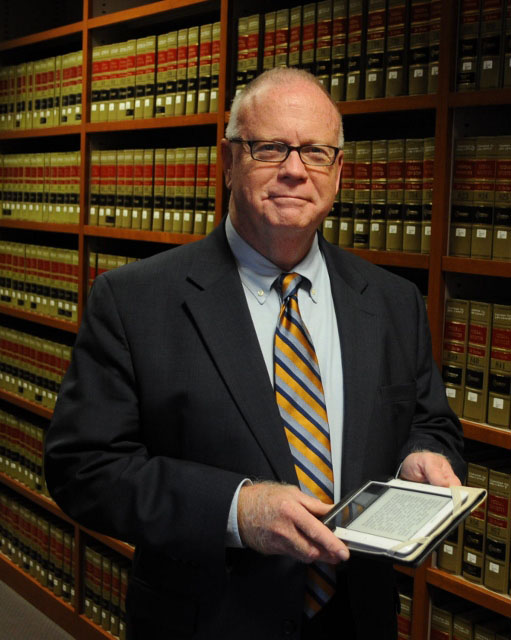ATLANTA –A video tracing the evolution of race relations in the Diocese of Atlanta premiered December 5 at The Absalom Jones Episcopal Center for Racial Healing.
The 40-minute documentary “Racial Healing in the Diocese of Atlanta. A Partial History,” spans 60 years in which the diocese evolved from keeper of the status quo to champion for inclusion.
In the opening scene, Episcopal Bishop Rob Wright announces plans for the Center during a 2014 sermon at The Cathedral of St. Philip. While Atlanta is known as the birthplace of the Civil Rights movement, Wright said the city and the Episcopal diocese were not always on the right side of history.
“Fifty-one years ago, the newspapers reported that Dr. [Martin Luther] King’s son was refused admittance to the Lovett school, which was then housed on this campus, and the then Bishop [Randolph Royall Claiborne] refused to issue a statement about race even at Coretta King’s begging. And that he decided that he would uphold the policy of segregation. And that his only statement for the newspaper was that ‘I am interested to know why a Baptist would want to go to a school with the Episcopalians.’ It might interest you to know that I have Bishop Claiborne’s vestments on underneath the Chasuble that I’m wearing as a poignant symbol that we can rewrite history together.”
The purpose of the Center would be truth telling, Wright said.
“We tell the truth not in anger, not against people, but we tell the truth because the truth has to be told, because the truth gives life, and so the truth of it was and is that we were on the wrong side of things then.
In response to Bishop Claiborne’s rejection of the King’s application, a white priest, The Rev. John Burnett Morris, began advocating for the integration of diocesan schools and parishes, Wright said. Rev. Ultimately Morris lost in license to be a priest in the diocese because he challenged Bishop Claiborne to open the diocese to people of all races.
In the 1970s The Rev. Austin Ford established a community based ministry in Atlanta’s Peoplestown community. Emmaus House, still in operation, soon became a locus of activists seeking better conditions for those living in poverty.
In 1994, then Bishop Frank Allen established a student center for the cluster of Black colleges in Atlanta, a fact that went mostly unnoticed at the time when the city was burnishing its image for the upcoming 1996 Olympics.
Dr. Catherine Meeks, a retired college professor and longstanding racial justice activist, became involved in what was then called Antiracism Training in the Diocese. But Meeks thought it needed to be more.
“And so, I went to Bishop Neil [Alexander] and said it could be done better. And he said, ‘then you become a member of the Commission,’ and I said I wasn’t trying to get to do that, but he said, ‘but if you don’t like it, you get to participate in making it different.’ And so, I volunteered to start teaching the dismantling racism class, which was called anti racism. But I thought, we’re the church, why aren’t we doing this in that way? Why weren’t we talking about this as spiritual formation, where we’re looking at this as a part of our overall journey toward healing and wellness?
Meeks said she “reimagined the training to make it Eucharist-centered, so we begin the training with the Eucharist instead of sort of apologetically doing a little prayer and then going off to do mostly just diversity stuff.”
That change “shifted the energy of the work in this diocese and has now become something that shifted the work across the whole church, Meeks recalls.
“Because people had not thought about the work as spiritual formation, they thought about it as social justice or fixing systems, but not about being a part of your ongoing spiritual journey as much as showing up for services on Sunday. It’s all part of the same thing.
“And just making those kinds of changes shifted the energy and then when Bishop Wright was elected bishop, he suggested that we might want a new name. Because anti racism training just sounds like it doesn’t invite people to do too much. And so, we decided that we would change our name to A Beloved Community: Commission For Dismantling Racism.”
The documentary also includes stories of people who helped frame and encourage the creation of the Absalom Jones Episcopal Center for Racial Healing which opened in 2017. With Dr. Meeks leadership the Center has become an international mission of the Episcopal Church and the Episcopal Diocese of Atlanta.
The video also introduces some of the tools and experiences that the Center uses for faith communities and individuals to engage in dismantling racism through education, prayer, dialogue, pilgrimage, and spiritual formation.
The center is named after Absalom Jones, who in the 18th Century founded the African Episcopal Church of St. Thomas in Philadelphia and was the first African American priest in the Episcopal Church.
Located in Atlanta on the edge of the Atlanta University Center, the Center also offers programs, resources, and events to promote racial healing and justice for AU students and employees.
Some of the Center’s activities include online screenings, podcasts, book clubs, workshops, and pilgrimages to historical sites related to slavery and civil rights.
The Center also has an extensive virtual library of books, articles, videos, and podcasts on topics such as African American, Asian, Latinx, Indigenous, and general media history and culture.
The Center’s ongoing vision is to be a brave space where people can learn, grow, and heal from the wounds of racism and oppression. Learn more about the Absalom Jones Episcopal Center for Racial Healing.
Watch Below:

